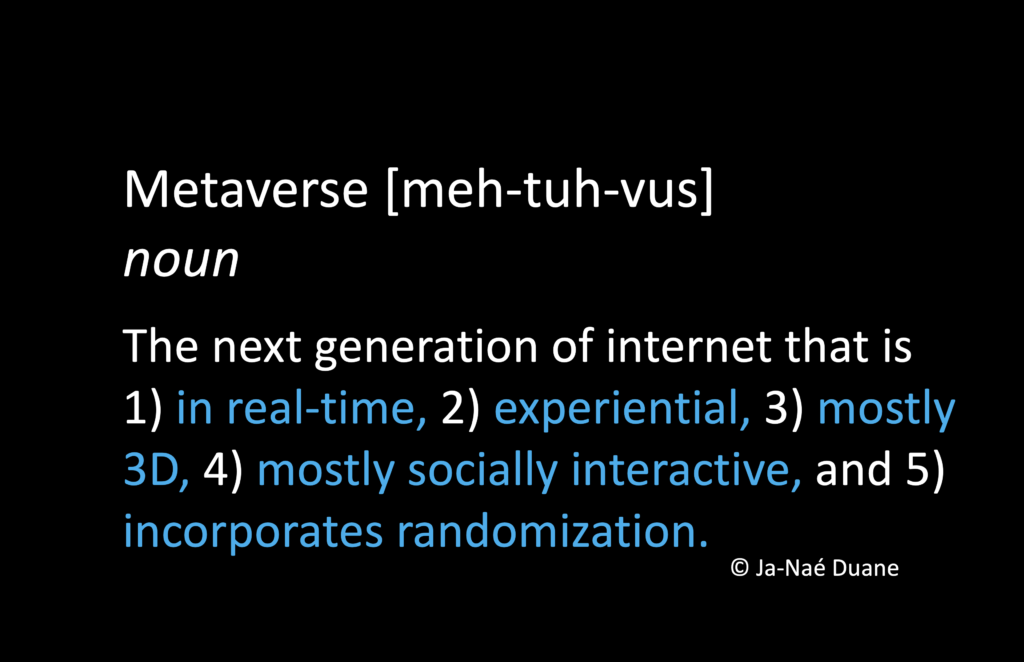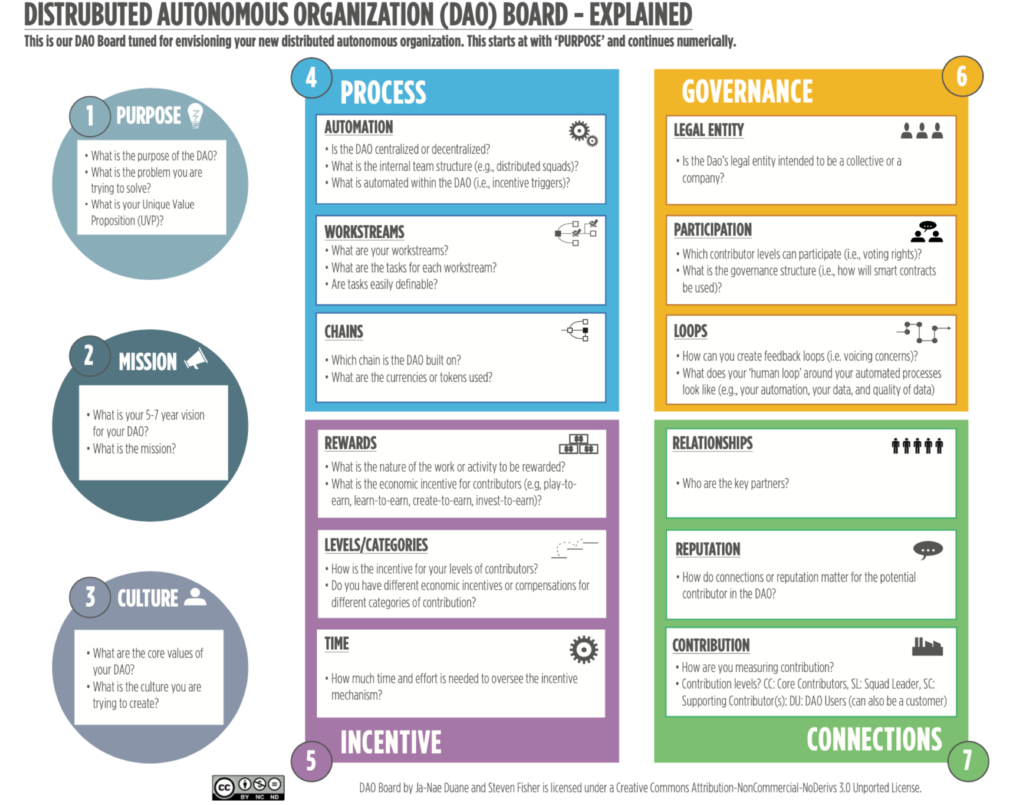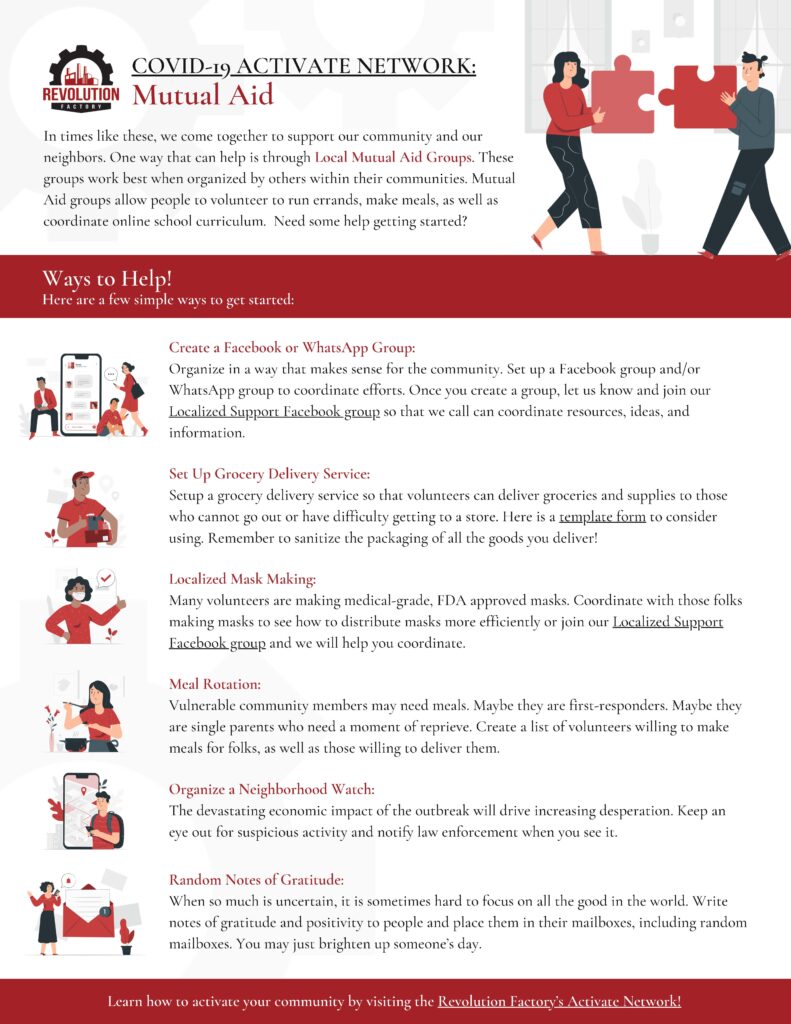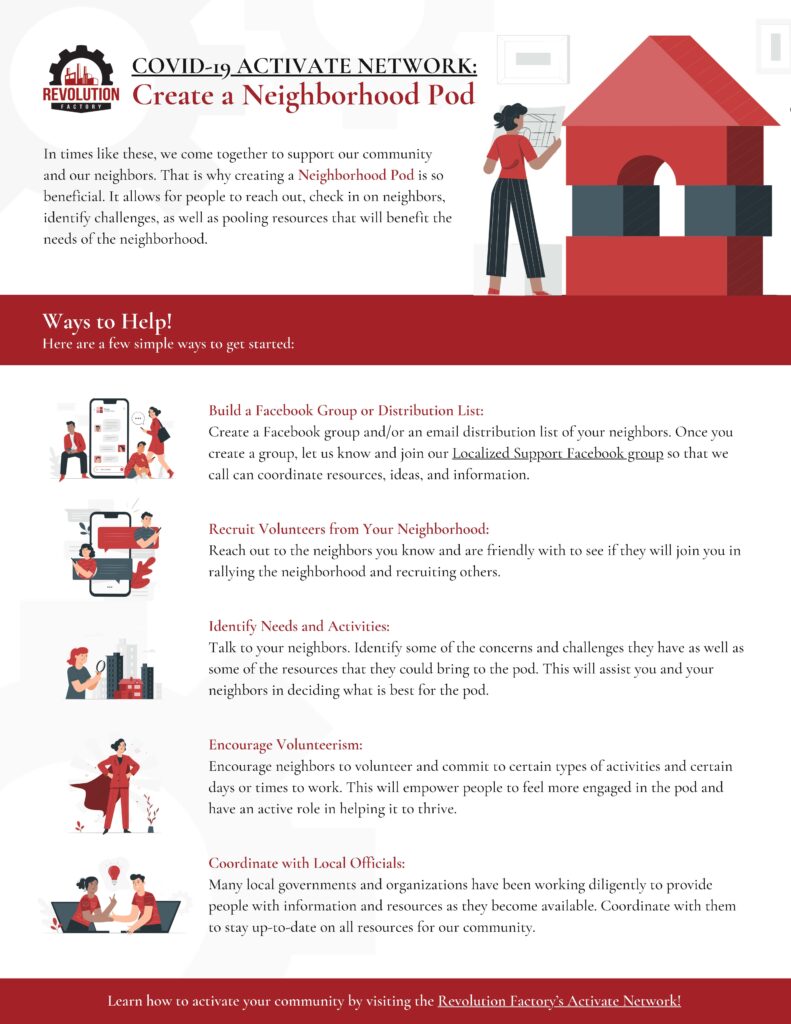This past fall, I spoke to hundreds of companies about what is the metaverse and what should they be doing now to prepare for it.
What is the metaverse?
The term was coined by science fiction author Neal Stephenson in his 1992 novel Snow Crash, to describe a virtual world where people could interact with each other and with virtual objects and environments in a way that felt real. Though there are many definitions out there, I build my definition off of how Unity describes it. The metaverse is the next generation internet that is 1) in real-time, 2) experiential, 3) mostly 3D, 4) mostly socially interactive, and 5) incorporates randomization.

Right now, very little of the internet is in real-time, experiential, and socially interactive. Only about 2-3% of the internet does that. None of the internet is 3D (though Nvidia just introduced their new 3D internet), nor incorporates randomization. We have a long way to go within quantum computation for this last piece. Eventually, the metaverse will eventually become the way that humans communicate and interate, not replacing the physical world, but augmenting it-enhancing it.
In the meantime, what can we consider as our current, nascent version of the metaverse?
So, what exactly is the Metaverse? It’s an interconnected network of virtual worlds, where people can interact and create their own digital identities, using both real and virtual currency. It’s a place where people can play games, explore new worlds, and communicate with each other in a virtual space.
Opportunities for Businesses
The Metaverse has huge potential for businesses looking to engage with customers in a new way. Companies can create their own virtual world, where customers can explore, shop, and even interact with the company’s staff. Companies can use virtual reality to showcase their products and services, or to educate customers on how to use their product. The Metaverse also allows businesses to create unique experiences, such as virtual events, where customers can meet each other and interact with each other in a virtual space.
The Metaverse also creates new opportunities for businesses to market their products and services in a more immersive and engaging way. Companies can create virtual reality experiences for customers to explore, allowing them to interact with their brand in a more personal and engaging way. The Metaverse also allows companies to create virtual loyalty programs, where customers can earn rewards for engaging with their brand.
The Metaverse has the potential to revolutionize the way businesses interact with their customers, and create new opportunities for companies to reach a wider audience. It’s an exciting way that businesses should be sure to explore as it continues to grow. Interesting in discussing a metaverse strategy for your company? Reach out to me at jduane @ revfactory.com.








